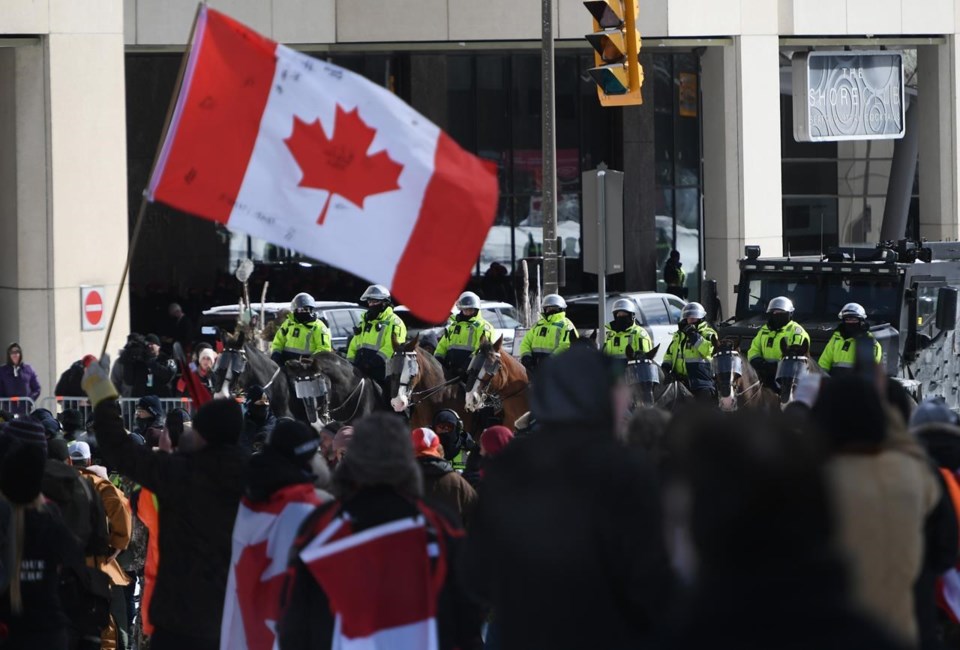OTTAWA — The "Freedom Convoy" movement was still in "full swing" the day the Liberal government invoked the Emergencies Act early last year, justifying the extraordinary measures, a federal lawyer said Wednesday during a judicial review of the government's historic decision.
The notion the protests and blockades across Canada were being brought under control by that point is "little short of revisionist history, or at the very least an interpretation of the state of affairs that benefits from hindsight bias," government lawyer John Provart told the Federal Court.
"The situation was dynamic, continuously unfolding in the days leading up to the invocation," he said. "And on the ground, other measures that had been taken — from injunctions to law enforcement efforts — had been flouted, proven ineffective."
On the third and final day of the proceedings, lawyers for the federal attorney general spelled out reasons the court should dismiss arguments from several groups and individuals opposed to the government's use of the emergency law.
After hearing from the parties, Justice Richard Mosley reserved decision on the matter until a later date, advising counsel it's going to "take a while" to arrive at a decision.
In early February 2022, downtown Ottawa was jammed with protesters, many in large trucks that arrived beginning in late January. Initially touted as a demonstration against COVID-19 health restrictions, the gathering attracted people with various grievances against Prime Minister Justin Trudeau and his government.
Meanwhile, the protests spread and vehicles clogged border crossings, including key routes to the United States at Windsor, Ont., and Coutts, Alta.
Civil liberties and constitutional defence groups told Mosley this week that the government did not meet the legal threshold for resorting to the Emergencies Act on Feb. 14.
The act allowed for temporary measures including the prohibition of public assemblies, the designation of secure places, direction to banks to freeze assets and a ban on support for participants.
The government says the measures were targeted, proportional, time limited and compliant with the Charter of Rights and Freedoms.
"Without the ability to know how things would have ended up if emergency measures had not been taken, it's not unreasonable to speculate that they would have been far worse," Provart said.
"What we do know is that the convoy movement was still in full swing on Feb.14, with threats of further blockades across the country, including in Ontario, Quebec and British Columbia."
Police were overwhelmed and had been threatened when attempting to ticket occupiers in Ottawa, and swarmed when trying to enforce bylaws or arrest individuals carrying jerry cans of fuel to their trucks, Provart said.
"The fact that not every Canadian or every region of the country was equally at risk does not diminish the overall threat posed to the country as a whole and the need for nationwide measures."
The Canadian Civil Liberties Association maintains the government did not clearly spell out proper legal justification for its use of the emergency measures.
Lawyer Janani Shanmuganathan, representing the Canadian Constitution Foundation, dissected the federal point that the tools were effective in bringing the disruptive events under control, suggesting the measures were too broad.
"Perhaps the question to ask is, well, did this all get cleared up so quickly because it was effective, or because it chilled so much speech, that it chilled legitimate people from doing the things that they would have been allowed to do?"
This report by The Canadian Press was first published April 5, 2023.
Jim Bronskill, The Canadian Press



